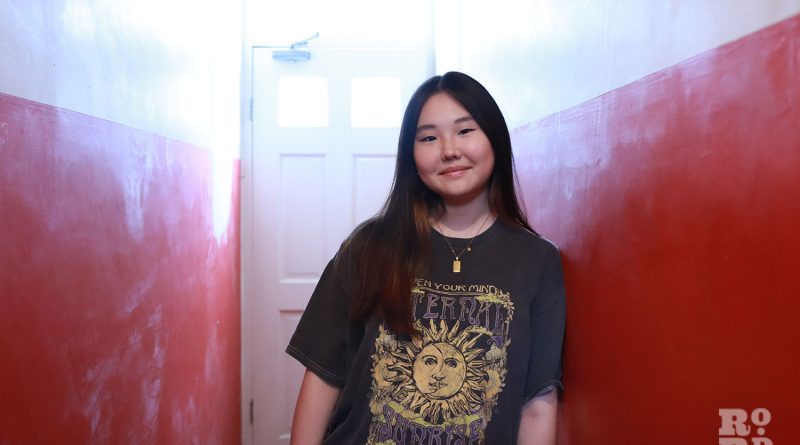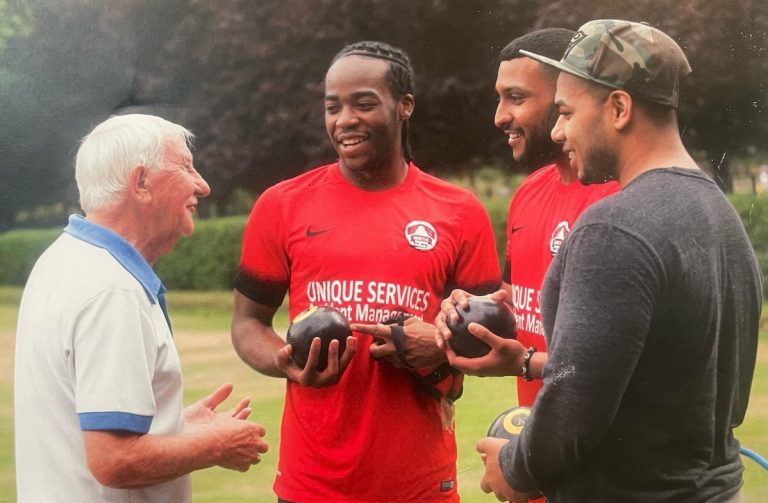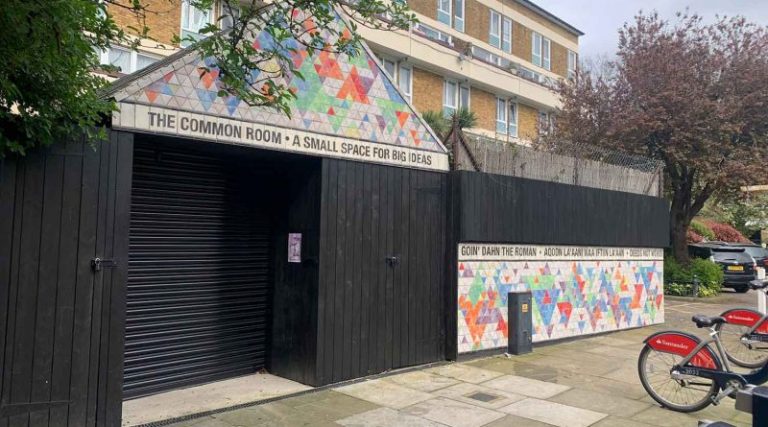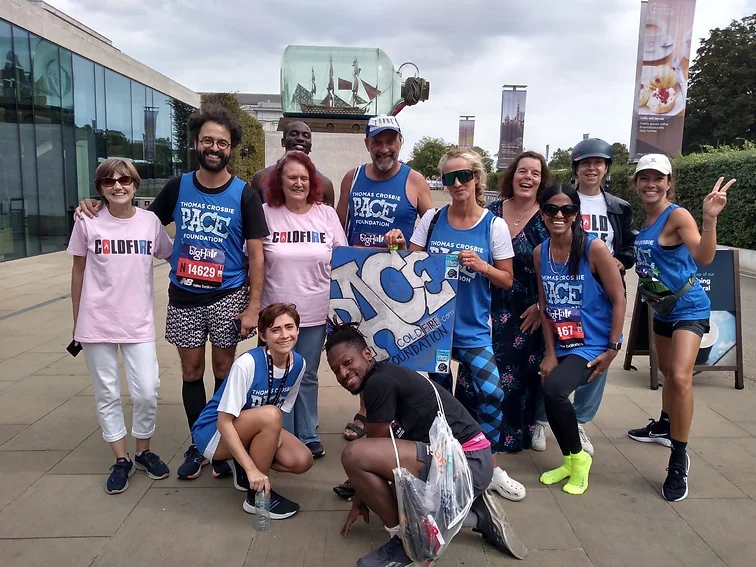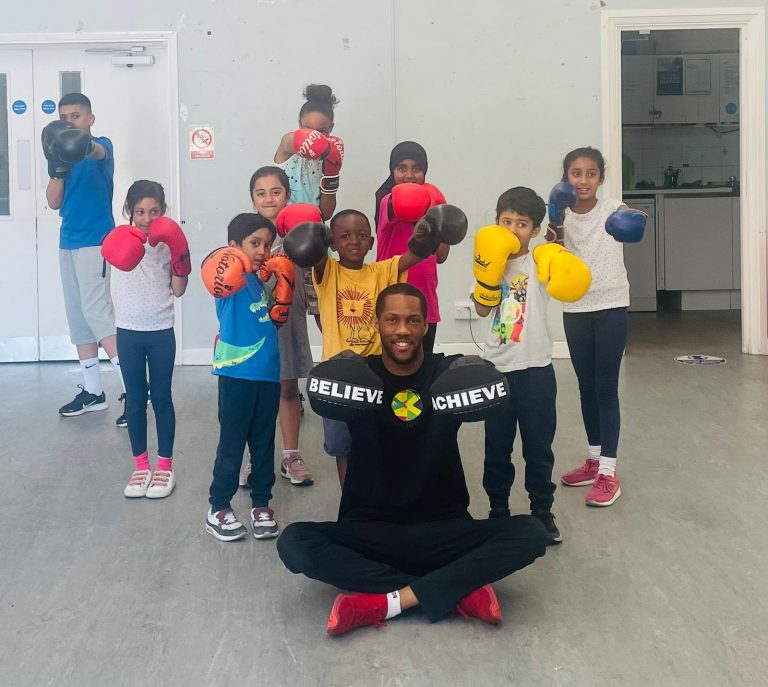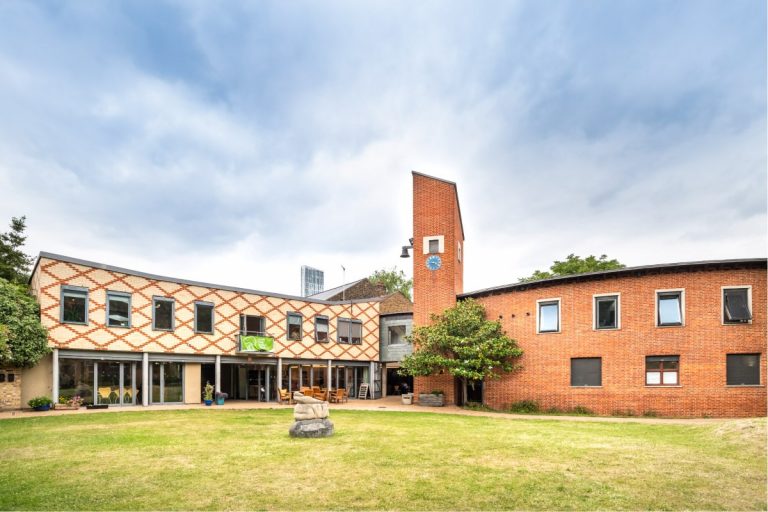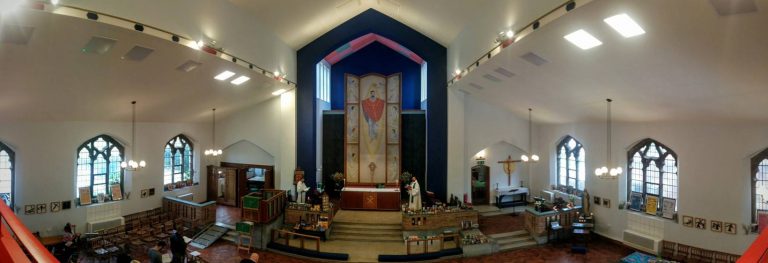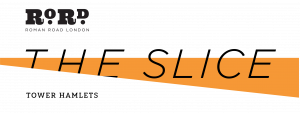This is Home: Burte Gerelt-Od, a Mongolian in Bow
Bow Road teenager Burte Gerelt-Od speaks to us about British and Mongolian school systems, cultural diversity fashion shows, and why the East End is comforting.
Burte Gerelt-Od is an 18-year-old Bow teenager. She moved from Mongolia to Stratford when she was two with her mum, dad, and sister but spent much of her childhood moving between her home country and East London. She now lives just off Bow Road, with her parents.
She recently left Draper’s Academy in Romford and has an offer to study biomedical engineering at City, University of London.
While waiting for her course to start, she is working as a waitress at her mum’s sushi bar, Ona’s Bento Sushi Bar.
What is your first memory?
I was born in Ulaanbaatar, the capital of Mongolia and then I came here when I was two. So, my first memory I have is of living in Stratford with my two aunts, their families, and my family all in one small apartment. In that space, it was very noisy, and I was making the noise. But I grew up playing with my cousins.
We would watch TV a lot, like Disney Channel, and would pretend we were in High School Musical. We’d be one character each. I was always the male character, Troy, and my sister was Gabriella.
All of us cousins would sleep in bunk beds, and we would have these big meals at the dinner table. We would bring different chairs in because there weren’t enough chairs to fit the one big table. It was just very warm but we’re also very involved with each other.
You were schooled in Mongolia until the age of 15. What was your school life like?
School in Mongolia, I would say, it’s more competitive than here.
I went to a maths and physics specialised school and there would be kids who would do maths Olympiads (which is a big thing in Asia) and get gold medals; the teachers would expect you to be the best at maths and physics. I was more artsy; I was the singer and dancer of the class so I would try not to feel left behind.
My mum tried so hard to get me into that school. I didn’t really enjoy it that much because that wasn’t what I was interested in, which is ironic because I did A-Level maths, chemistry, and biology. Education in Mongolia is number one.
Now, I see a different perspective.
I feel there’s less pressure here. Back in Mongolia, you would do a big test every term and then, at the end of the year, you would have a mean grade. But here, you study for two years and then do one big exam and like your whole life depends on that.
There’s a bit more pressure, but less pressure at the same time because the classes weren’t as challenging. Or maybe I was more dedicated because I was more mature.
The teachers, here, help you more because they understand you; it’s more like a friendly relationship which is different in Mongolia – whatever they say is correct; it’s more hierarchical and a bit old-fashioned.
What meal or food do you associate with home?
Khuushuur. It’s a flat dumpling and it’s fried. I just have good memories with that because I associate it with cooking with my mum and my grandma, especially making it over Lunar New Year.
I would always help them because it’s such a time-consuming dish. You have to roll the dough and then put in the fillings, such as onions and beef or lamb, and assemble it. When I was really little, I couldn’t do any of that, so I just stacked them on the board and counted them out, ready to be cooked by my grandma.
Sometimes I make them on my own. It feels a bit empty when I do it by myself, but it’s very therapeutic.
What item in your home best connects you to your heritage?
A silver bowl which we drink milk from.
Milk is actually a very respected beverage in Mongolia because it symbolises purity and welcomeness. So, when we greet our elderly relatives during Lunar New Year, we would offer them cow’s milk, or they would offer us milk to symbolise that connection.
It’s so respected that, when I was little, if I dropped milk on the floor, my mum would take some and put it on my forehead, and then wipe the milk. I think it means God bless you, or something.
But drinking milk from the silver bowl is part of a blessing, so we do that when people get married or celebrate New Year. The oldest male would drink first, so in my house it’s my dad, and then my mum, and then I would drink it.
Our silver bowl has a wooden ring on the outside and a drawing on the inside of four animals. There’s an elephant, monkey, rabbit, and pigeon. Back in Mongolia, it’s a well-known picture. I don’t know how to translate it, but it’s meant to be brothers and, even though they’re very different, that’s just a way of showing empathy and unity.
What do you think is the best way to bridge cultural divides between different people?
At my school in London, we did Culture Day. That was a really good way to connect people. There was so much happiness on people’s faces and you saw other sides of people that you don’t see every day.
People shared foods from their different cultures. People were talking about and eating the food and enjoying it; it felt really warm, you know? There was also a runway show where people would walk on the runway with their cultural outfits and show them off, and people were cheering for them. It was really eye-opening.
What does the East End mean to you?
It’s humble and I would say it’s nostalgic. Nostalgic because I’ve sort of grown up here.
And then I think it’s humble because it’s not as prestigious as other areas in London, but it’s also not in a bad way. Because you would feel intimidated when you’re in other parts of London, like west London. But when you come here, it’s comforting and welcoming. I feel like this is the perfect place.
If you enjoyed reading about Burte Gerelt-Od, then read our interview with Ukrainian-Russian Veronica Morozova.

